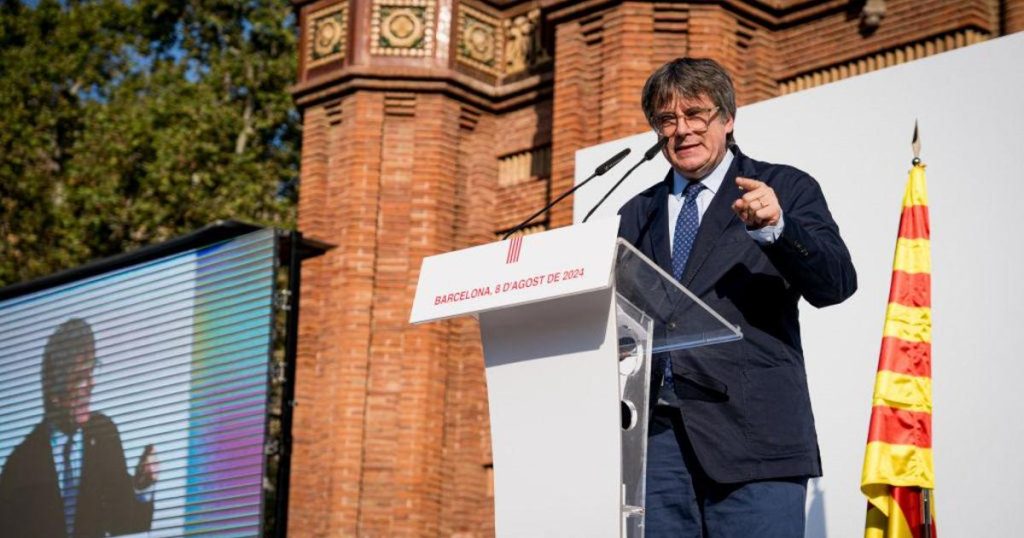Carles Puigdemont, the leader of the Catalan independence movement, has returned to the presidency of his party, which he had left two years ago. Puigdemont has been living in Belgium for the past seven years, as he is wanted by the Spanish police for his role in promoting Catalonia’s secession from Spain in 2017. His motion to reclaim the presidency of his party, “Junts per Catalunya” (Together for Catalonia), received over 90% of the votes at the party’s congress in Calella, near Barcelona. Despite being abroad, Puigdemont addressed party members via video conference, urging them to continue fighting for a free Catalonia. Although he had previously stepped down as party president to focus on his legal strategy and duties as a Member of the European Parliament, Puigdemont decided to run in the regional elections in May, campaigning from outside Spain.
On August 8th, just before Socialist Salvador Illa was elected president of the region, Puigdemont made a surprise appearance in the Catalan Parliament. He delivered a short speech and managed to evade arrest by Spanish authorities. The government of Socialist Prime Minister Pedro Sanchez had previously approved a controversial amnesty for separatists involved in the 2017 secession attempt. However, a Supreme Court judge ruled that this measure did not apply to Puigdemont due to separate accusations of misappropriation of funds. Puigdemont is currently awaiting the outcome of his appeal, as he continues to navigate the legal challenges stemming from his activism in the independence movement.
Despite facing legal troubles, Puigdemont remains a prominent figure in the Catalan political landscape. His return to the presidency of “Junts per Catalunya” demonstrates his enduring influence within the movement for Catalan independence. Puigdemont’s continued involvement in regional politics, even while living in exile, underscores the deep-rooted support for independence among many Catalans. The ongoing legal battles and political maneuvering surrounding Puigdemont reflect the complex and contentious nature of the debate over Catalonia’s autonomy within Spain.
The resurgent popularity of Puigdemont and his party highlight the enduring appeal of the independence movement in Catalonia. The recent regional elections saw a strong showing for pro-independence parties, indicating that the desire for self-governance remains a significant issue for many Catalans. Puigdemont’s ability to mobilize support and maintain his political influence from abroad underscores the deep-seated divisions within Catalan society regarding independence from Spain. As Puigdemont awaits the outcome of his legal challenges and continues to advocate for Catalonia’s right to self-determination, the future of the region remains uncertain, with tensions between pro-independence activists and the Spanish government persisting.
The ongoing legal proceedings against Puigdemont and other separatist leaders reflect the broader struggle for Catalan autonomy within the framework of Spanish governance. The Spanish government’s response to the independence movement, including legal actions and amnesty measures, highlights the deeply divisive nature of the issue. As Puigdemont navigates the complexities of the legal system and continues to champion the cause of Catalan independence, the region remains at a crossroads, with the potential for further political turmoil and uncertainty. The enduring popularity of Puigdemont and the strength of the Catalan independence movement suggest that the issue will remain a central point of contention within Spanish politics for the foreseeable future.


